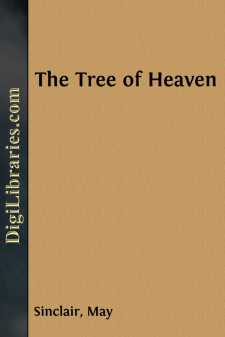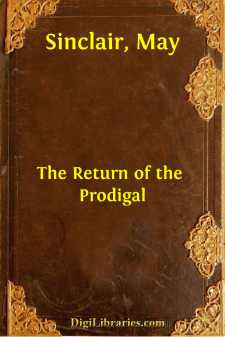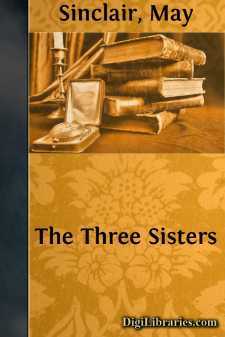Categories
- Antiques & Collectibles 13
- Architecture 36
- Art 48
- Bibles 22
- Biography & Autobiography 813
- Body, Mind & Spirit 142
- Business & Economics 28
- Children's Books 17
- Children's Fiction 14
- Computers 4
- Cooking 94
- Crafts & Hobbies 4
- Drama 346
- Education 46
- Family & Relationships 57
- Fiction 11829
- Games 19
- Gardening 17
- Health & Fitness 34
- History 1377
- House & Home 1
- Humor 147
- Juvenile Fiction 1873
- Juvenile Nonfiction 202
- Language Arts & Disciplines 88
- Law 16
- Literary Collections 686
- Literary Criticism 179
- Mathematics 13
- Medical 41
- Music 40
- Nature 179
- Non-Classifiable 1768
- Performing Arts 7
- Periodicals 1453
- Philosophy 64
- Photography 2
- Poetry 896
- Political Science 203
- Psychology 42
- Reference 154
- Religion 513
- Science 126
- Self-Help 84
- Social Science 81
- Sports & Recreation 34
- Study Aids 3
- Technology & Engineering 59
- Transportation 23
- Travel 463
- True Crime 29
The Romantic
by: May Sinclair
Categories:
Description:
Excerpt
I
They turned again at the end of the platform.
The tail of her long, averted stare was conscious of him, of his big, tweed-suited body and its behaviour, squaring and swelling and tightening in its dignity, of its heavy swing to her shoulder as they turned.
She could stave off the worst by not looking at him, by looking at other things, impersonal, innocent things; the bright, yellow, sharp gabled station; the black girders of the bridge; the white signal post beside it holding out a stiff, black-banded arm; the two rails curving there, with the flat white glitter and sweep of scythes; pointed blades coming together, buried in the bend of the cutting.
Small three-cornered fields, clean edged like the pieces of a puzzle, red brown and pure bright green, dovetailed under the high black bar of the bridge. She supposed you could paint that.
Turn.
Clear stillness after the rain. She caught herself smiling at the noise her boots made clanking on the tiles with the harsh, joyous candour that he hated. He walked noiselessly, with a jerk of bluff knickerbockered hips, raising himself on his toes like a cat.
She could see him moving about in her room, like that, in the half darkness, feeling for his things, with shamed, helpless gestures. She could see him tiptoeing down her staircase, furtive, afraid. Always afraid they would be found out.
That would have ruined him.
Oh well—why should he have ruined himself for her? Why? But she had wanted, wanted to ruin herself for him, to stand, superb and reckless, facing the world with him. If that could have been the way of it.
Turn.
That road over the hill—under the yellow painted canopy sticking out from the goods station—it would be the Cirencester road, the Fosse Way. She would tramp along it when he was gone.
Turn.
He must have seen her looking at the clock. Three minutes more.
Suddenly, round the bend, under the bridge, the train.
He was carrying it off fairly well, with his tight red face and his stare over her head when she looked at him, his straight smile when she said "Good-bye and Good-luck!"
And her silly hand clutching the window ledge. She let go, quick, afraid he would turn sentimental at the end. But no; he was settling down heavily in his corner, blinking and puffing over his cigar.
That was her knapsack lying on the seat there. She picked it up and slung it over her shoulder.
Cirencester? Or back to Stow-on-the-Wold? If only he hadn't come there last night. If only he had let her alone.
She meditated. She would have to wire to Gwinnie Denning to meet her at Cirencester. She wondered whether Gwinnie's mother's lumbago would last over the week-end. It was Friday. Perhaps Gwinnie had started. Perhaps there would be a wire from her at the hotel.
Going on to Cirencester when you wanted to be in Stow-on-the-Wold, what was it but a cowardly retreat? Driven out of Stow-on-the-Wold by Gibson? Not she!
Dusk at ten o'clock in the morning under the trees on the mile-long hill. You climbed up and up a steep green tunnel....












